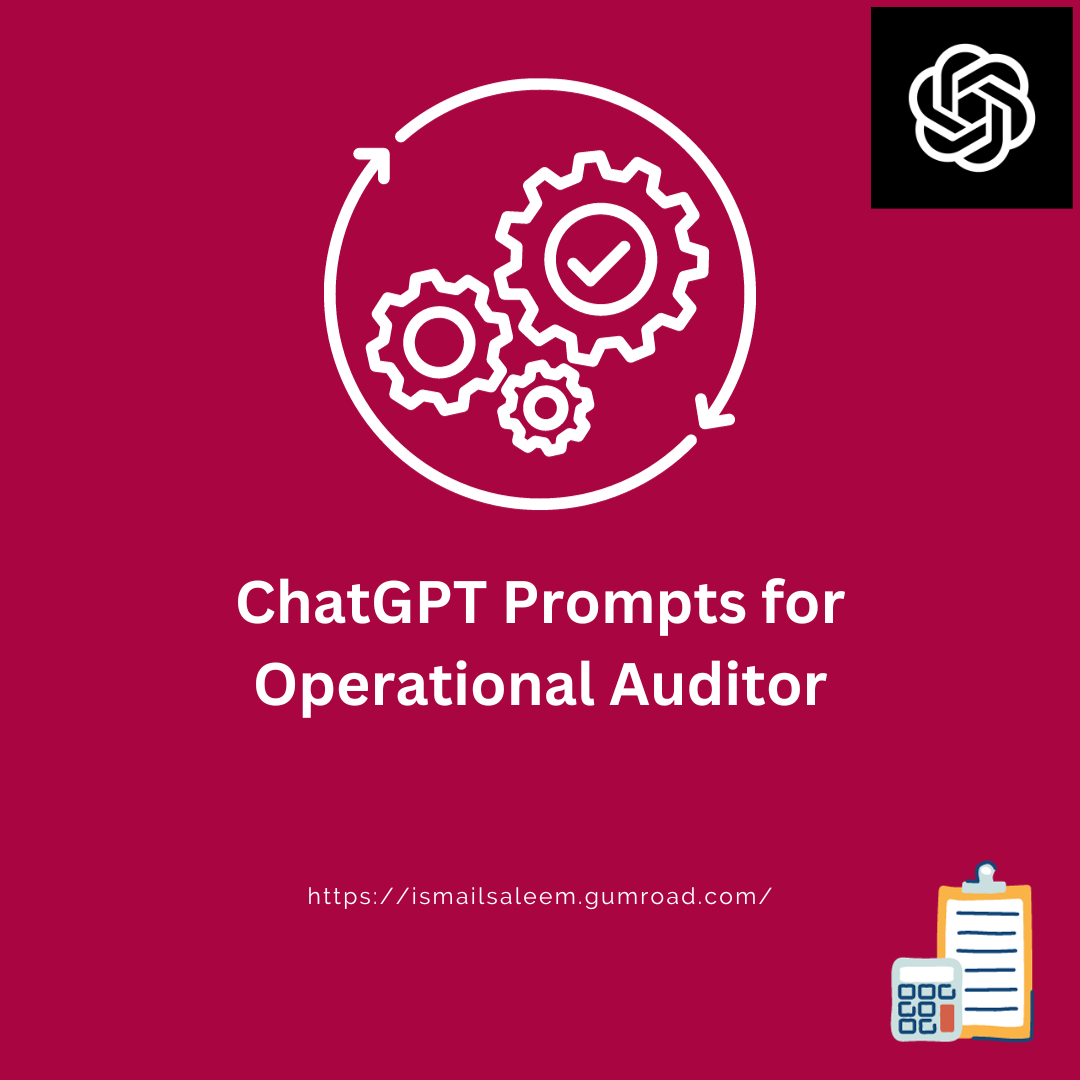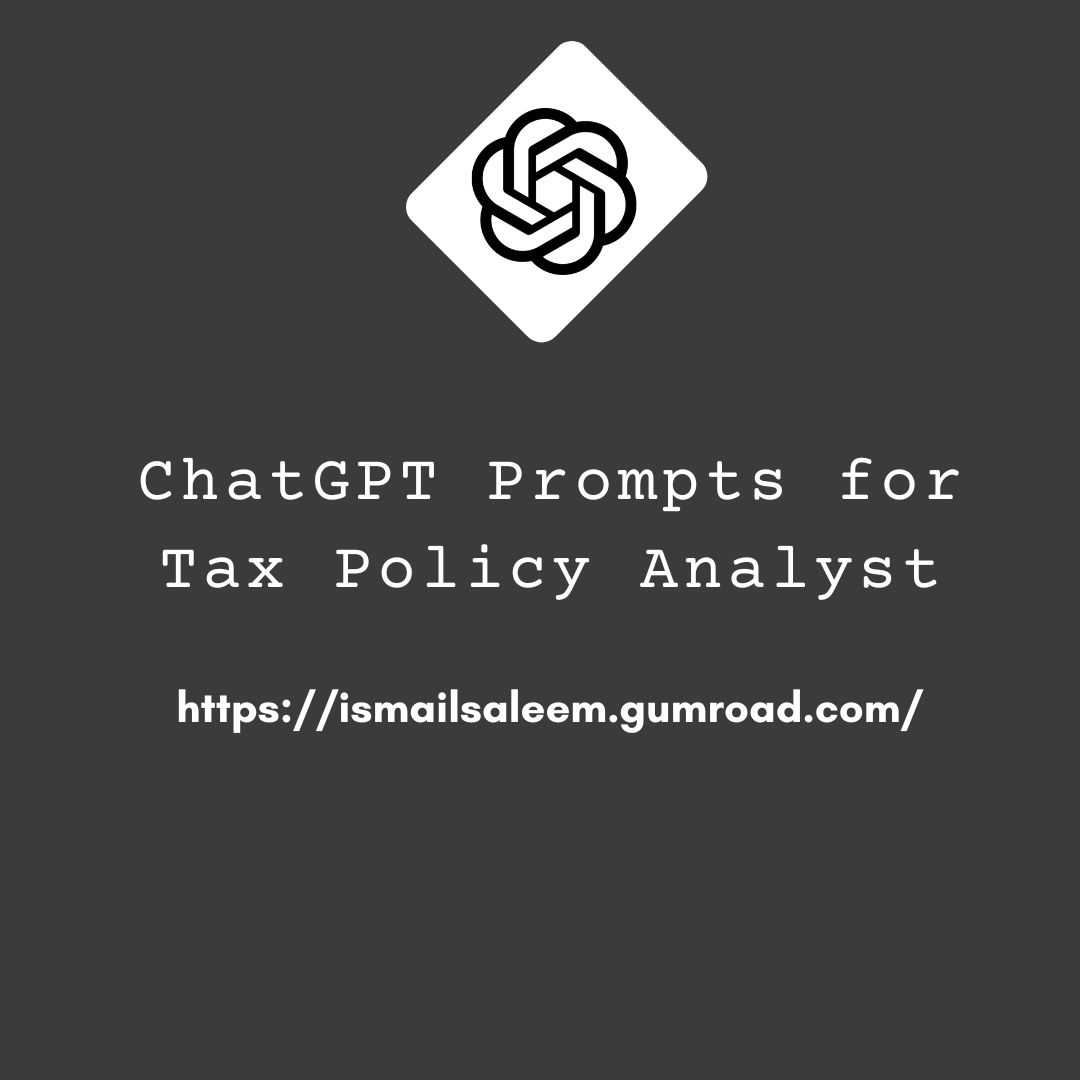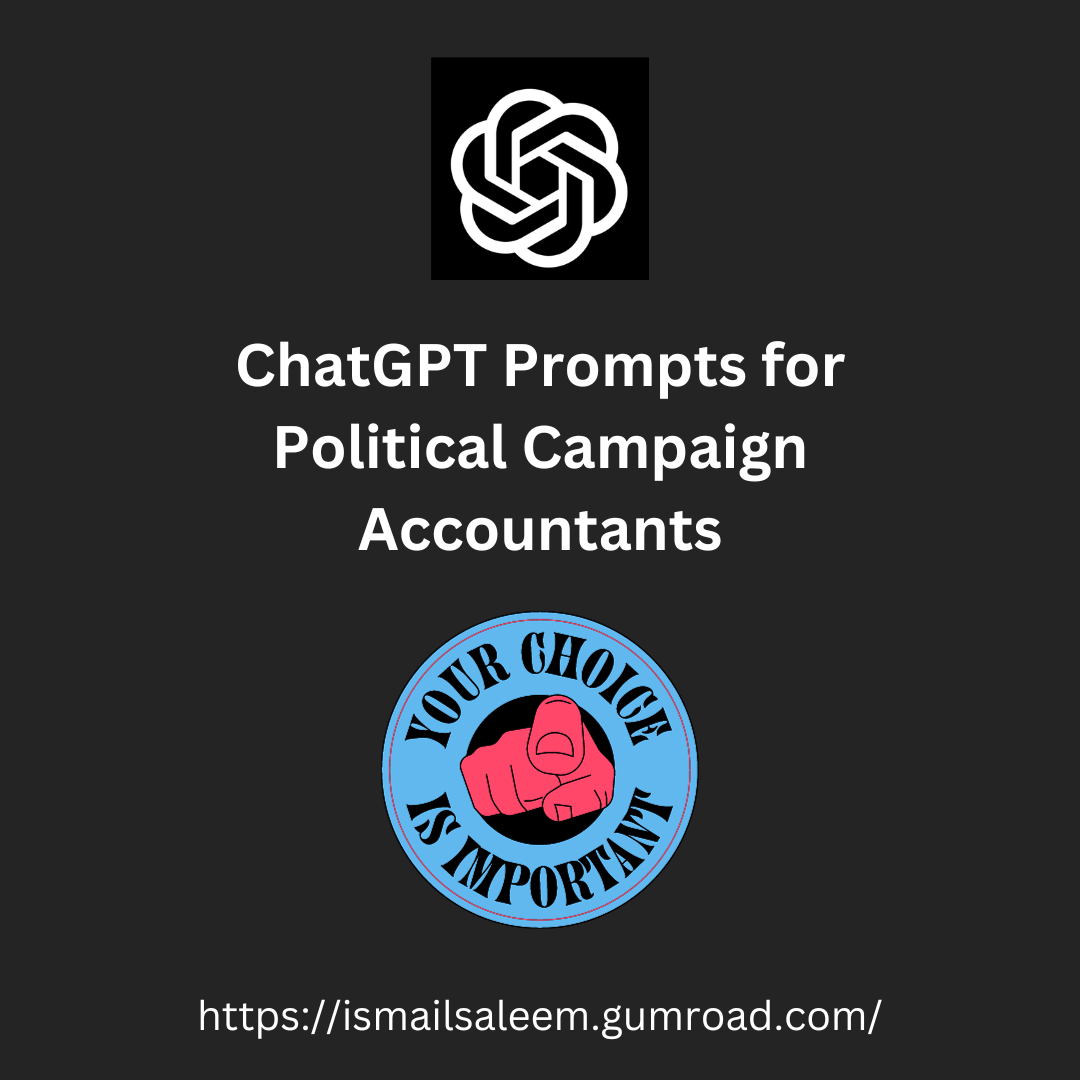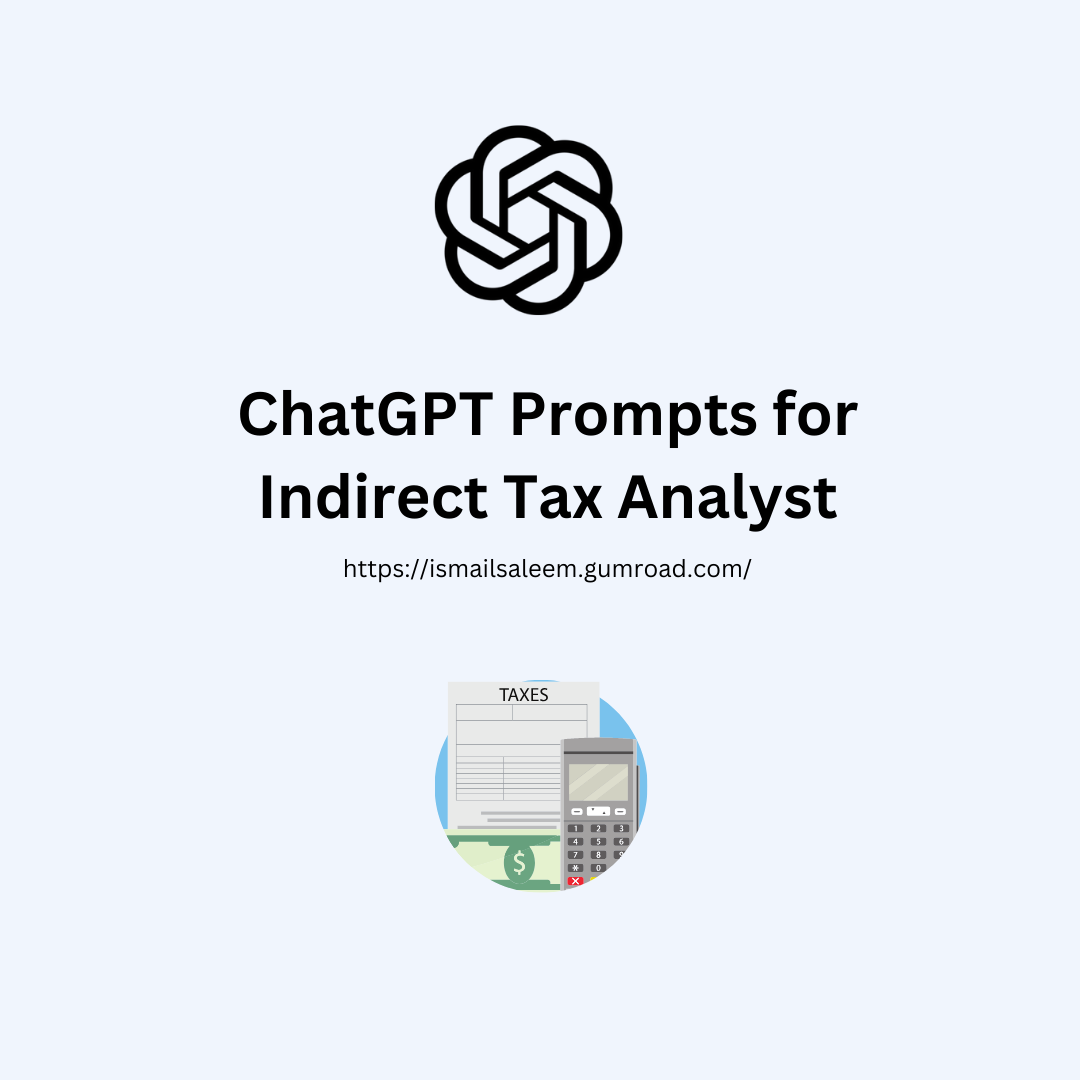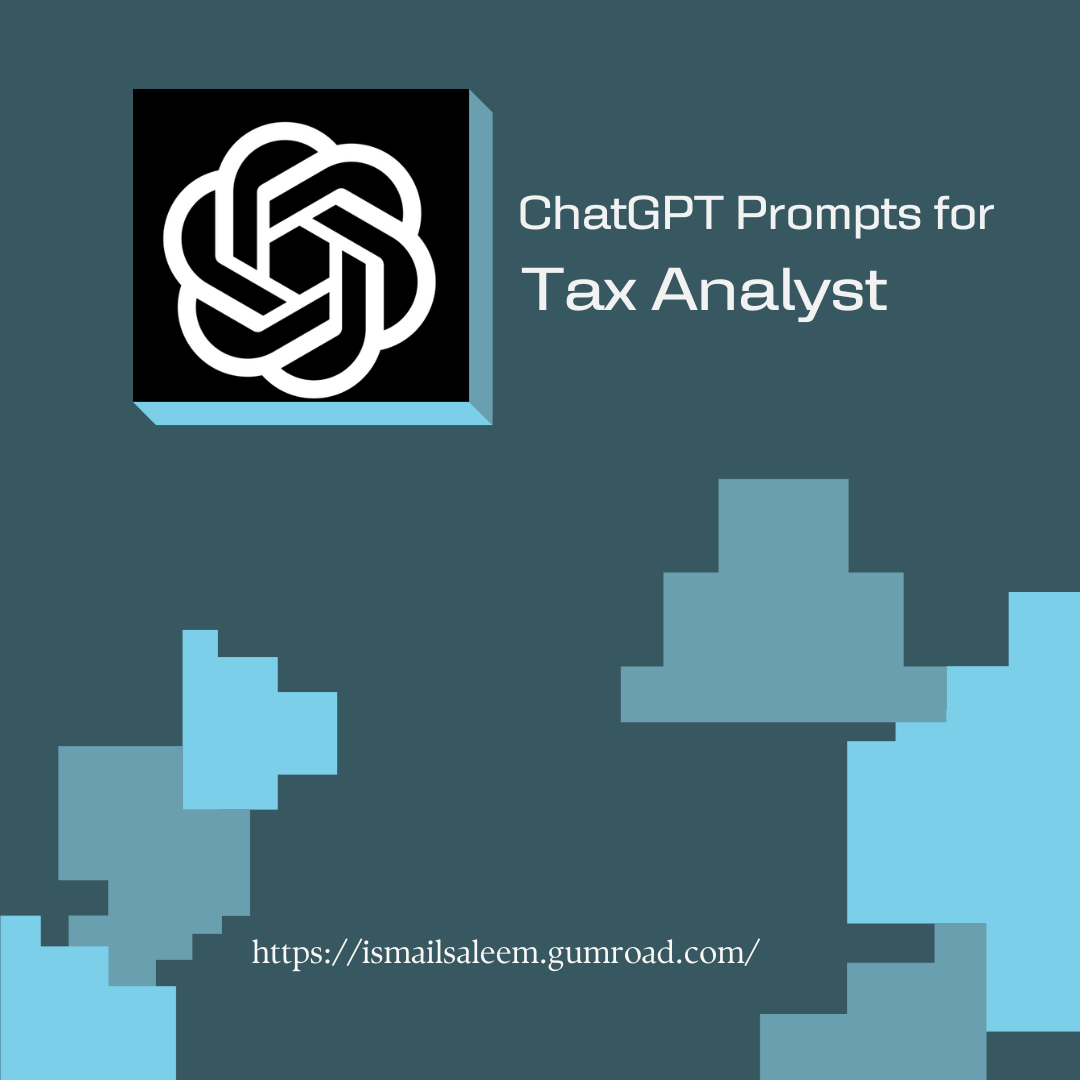As the complexity of global economies grows, so does the need for sophisticated tax policy analysis. Tax policy analysts are continually seeking innovative tools to streamline their research, enhance their analytical capabilities, and improve their forecasting models. One such tool that has gained significant traction is ChatGPT, an advanced language model developed by OpenAI. ChatGPT can assist tax policy analysts by generating insightful prompts that facilitate deeper analysis, enhance data interpretation, and foster more effective policy recommendations.
200+ Prompts for Tax Policy Analyst
- As a Tax Policy Analyst, you are tasked with analyzing the impact of a proposed tax increase on small businesses in rural areas, considering both economic and social factors. Present your findings to a panel of policymakers.
- A major corporation is lobbying for tax incentives to support their renewable energy initiatives. As a Tax Policy Analyst, evaluate the long-term fiscal implications and prepare a detailed report on potential benefits and drawbacks.
- You are a Tax Policy Analyst responsible for assessing the effects of a new international trade agreement on national tax revenues. Develop a comprehensive analysis that considers various economic scenarios and global market conditions.
- A new government policy proposes significant tax cuts for high-income earners. As a Tax Policy Analyst, evaluate the potential impacts on income inequality and public services, and suggest alternative approaches if necessary.
- As a Tax Policy Analyst, you are asked to analyze the fiscal sustainability of a universal basic income program funded through progressive taxation. Provide a detailed report with projections and policy recommendations.
- A developing country is considering implementing a value-added tax (VAT) to increase revenue. As a Tax Policy Analyst, assess the potential economic impact on different sectors and income groups, and advise on the best implementation strategies.
- The government is planning to overhaul the corporate tax system. As a Tax Policy Analyst, you need to evaluate the potential effects on domestic investment and international competitiveness, and recommend policy adjustments.
- You are a Tax Policy Analyst tasked with examining the effectiveness of existing tax credits for research and development. Conduct a thorough analysis and propose modifications to enhance innovation and economic growth.
- A new policy aims to reduce tax evasion through stricter enforcement and penalties. As a Tax Policy Analyst, analyze the potential economic and social outcomes, and provide a comprehensive risk assessment.
- As a Tax Policy Analyst, you are asked to study the impact of tax policies on housing affordability. Evaluate various tax incentives and disincentives related to real estate, and suggest measures to improve housing market stability.
- A new policy proposes significant tax breaks for companies that invest in affordable housing projects. As a Tax Policy Analyst, assess the potential economic impact of these tax breaks, evaluate their effectiveness in promoting affordable housing, and analyze the fiscal implications. Provide a detailed policy recommendation that includes criteria for eligibility and measures to ensure the intended benefits are realized.
- The government is considering implementing a tax on high-sugar foods to reduce healthcare costs associated with obesity. As a Tax Policy Analyst, evaluate the potential public health benefits of the tax, analyze its economic impact on the food industry, and assess how it might affect consumer behavior. Develop a comprehensive strategy that includes measures to monitor and evaluate the effectiveness of the tax.
- As a Tax Policy Analyst, evaluate the effects of a proposed carbon tax on various industries. Develop a comprehensive report outlining the potential economic impacts, including changes in consumer behavior and market dynamics. Additionally, propose policy adjustments to mitigate any adverse effects on low-income households.
- A new policy aims to provide tax incentives for electric vehicle adoption. As a Tax Policy Analyst, analyze the long-term fiscal implications and environmental benefits of these incentives. Furthermore, assess how the policy might influence domestic automotive manufacturing and international trade relations.
- The government is considering introducing a wealth tax. As a Tax Policy Analyst, evaluate the potential revenue generation and economic impacts of this tax. Additionally, analyze how it might affect income distribution and propose alternative measures to achieve similar fiscal goals.
- As a Tax Policy Analyst, assess the impact of tax incentives for renewable energy projects on job creation and economic growth. Prepare a detailed report on potential environmental benefits and consider how the incentives might influence energy prices and market competition.
- A new policy proposes significant tax cuts for high-income earners. As a Tax Policy Analyst, evaluate the potential effects on public service funding and income inequality. Additionally, propose alternative tax structures that could achieve similar economic growth without exacerbating social disparities.
- The government plans to introduce a financial transactions tax. As a Tax Policy Analyst, assess the potential impacts on market liquidity, investment behavior, and revenue generation. Provide recommendations for implementation to minimize adverse effects on financial markets.
- As a Tax Policy Analyst, evaluate the effectiveness of current tax credits for research and development. Develop a comprehensive analysis of their impact on innovation and economic growth. Additionally, propose modifications to enhance their effectiveness and ensure equitable distribution of benefits.
- A new tax policy aims to reduce corporate tax rates to stimulate investment. As a Tax Policy Analyst, analyze the potential short-term and long-term fiscal impacts. Furthermore, assess how the policy might affect international competitiveness and domestic job creation.
- The government is considering a shift from income taxes to consumption taxes. As a Tax Policy Analyst, evaluate the potential economic and social impacts of this transition. Additionally, propose measures to ensure the new tax system is equitable and does not disproportionately burden low-income households.
#ChatGPTPromptsForTaxPolicyAnalyst #TaxPolicyAnalysis #TaxLegislation #PolicyDevelopment #EconomicImpactAnalysis #TaxReform #PolicyRecommendations #GovernmentTaxation #TaxationTrends #FiscalPolicy #TaxCompliance #RevenueForecasting #PolicyResearch #TaxEquity #PublicFinance #TaxStrategy #ChatGPT #PromptEngineering #Prompt

